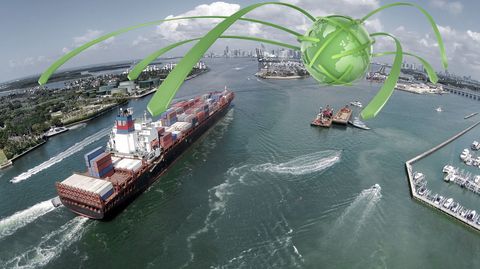One of the most problematic consequences of the UK's vote to leave the European Union in June 2016 has been the considerable uncertainty this has created for businesses in Britain, as well as their overseas partners.
Although negotiations over a post-Brexit settlement have been ongoing between the UK and EU for a number of months, little tangible progress has been made, meaning companies are no closer to finding out what kind of future trade arrangements will exist between the two regions once Britain finally departs the union in March 2019.
As such, the British government has faced increasingly vocal calls from the UK business community to agree to a transitional period after Brexit that would allow current trading conditions to continue until a permanent new solution can be found. The subsequent positive reaction to prime minister Theresa May's confirmation that such an arrangement is likely underlines just how important it is for businesses to have a degree of continuity during what remains an uncertain period.
A united stance
British businesses, as represented by lobbying group the CBI, have been adamant about the need for a transitional deal for some time, but stepped up their campaign with a letter sent to the UK's Brexit secretary David David and Europe's chief negotiator Michel Barnier earlier this month.
Signed by more than 100 companies accounting for 500,000 UK and 600,000 EU jobs, the letter called for a transitional period of up to three years, which would mean the UK remaining as a member of the European single market and customs union even after formally leaving the EU, until a new long-term trade deal is ready for implementation.
The companies said: "Our businesses need to make decisions now about investment and employment that will affect economic growth and jobs in the future. Continuing uncertainty will adversely affect communities, employees, firms and our nations in the future."
The reasons for a transitional deal
In the view of the business community, this kind of transitional agreement should be considered essential given the unlikeliness of a new UK-EU free trade agreement being ready in time for March 2019.
The chief concern this causes is that immediately post-Brexit, businesses trading between these regions will suddenly be hit with a huge number of new tariffs and administrative hurdles, resulting in considerable costs that would be potentially devastating to companies of all sizes. Indeed, a recent CBI survey showed that 40 per cent of UK firms are reducing or delaying investment in response to Brexit uncertainty, and the continued prospect of a potential no-deal Brexit is one of the leading worries.
A transitional deal would ease these fears by allowing the UK to stay inside the single market and customs union until a final deal is in force, meaning companies will only need to prepare for one set of changes rather than two, and would aid negotiators' efforts to come to a mutually agreeable settlement by easing one of the key time pressures.
Subsequent developments
The CBI's letter came in advance of Theresa May's Brexit speech in Florence on September 22nd, during which the prime minister appeared to acknowledge the business community's suggestions by announcing plans for a post-Brexit implementation period, during which current trading conditions will continue.
She acknowledged that "neither the UK or EU will be in a position to implement smoothly new arrangements" on March 2019, saying that the length of the transitional period will be around two years - although this remains subject to the needs of the implementation process.
The statement was met with a positive reception by the CBI, which praised Mrs May for her speech's "positive tone", while also calling for leadership from both the EU and UK sides to turn the principles they have outlined by into concrete action.
Carolyn Fairbairn, the CBI's director-general, said: "Negotiators must now move the talks on to trade and transition as soon as possible. More tough choices and compromises await and listening to firms will help ensure agreement on a comprehensive version of what our future economic relationship with the EU will look like."






